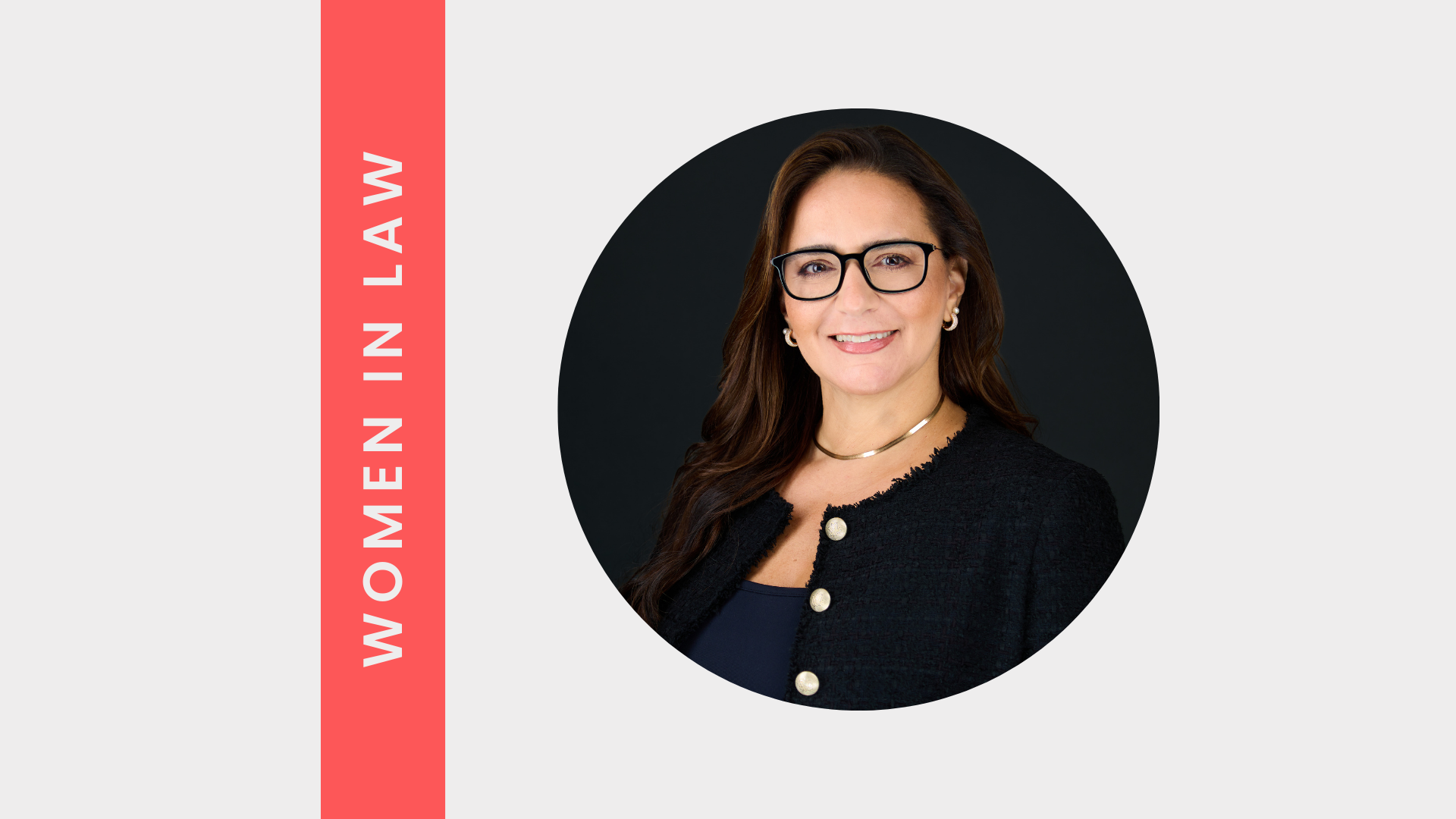Women in Law: Michelle Nelson
We're back! We're thrilled to announce the return of our interview series, Women in Law, where we shine a spotlight on the extraordinary women making waves in the legal world. Join us as we delve into their journeys, explore their challenges and triumphs and celebrate their remarkable achievements.
Michelle is a partner in the Reed Smith LLP Energy and Natural Resources practice. She is a specialist arbitration lawyer with over 25 years of experience. Her practice focuses on the Middle East, advising on major oil, gas and construction and infrastructure disputes.
Michelle represents clients in arbitration proceedings under the major international and regional arbitration rules including the ICC, LCIA, UNCITRAL, DIAC and ADCCAC seated in Paris, London, Geneva, Dubai, Abu Dhabi and Oman. Michelle acts for a variety of employers, contractors, consultants and subcontractors, and has advised on a wide range of projects including airports, process and power plants, roads, commercial and residential premises.
Michelle is a qualified Solicitor Advocate and undertakes her own advocacy in her arbitration practice. She also has rights of audience before the DIFC Courts. Michelle sits as an Arbitrator in relation to regional disputes and has been appointed as arbitrator by both regional and international institutions including the ICC, LCIA and DIAC in respect of commercial and construction related disputes seated in the UAE and Oman.
Michelle regularly speaks and writes on construction and international arbitration issues. She is ranked in Band 1 by Chambers Global for UAE Construction Disputes and is listed in the Legal 500 Hall of Fame for Construction in the UAE in recognition of constant praise by clients for continued excellence. She has also been named a Global Elite Thought Leader by Who’s Who Legal. Michelle was shortlisted for Construction Lawyer of the Year and UAE Lawyer of the Year at the Legal 500 Middle East and North Africa Awards 2024.
Clients have commented in Chambers Global, UAE 2024:
“Michelle Nelson stands out as an exceptional lawyer with a unique blend of extensive legal knowledge and astute business sense. Her capacity to navigate intricate legal issues with clarity and her knack for explaining complex legal concepts plainly make her a standout in her field.”
“She has an incredible level of knowledge of the issues across various technical fields. She also understands the importance of timely communication and a team-based approach.” “Her ingenuity and savviness, combined with her affable and respectful personality, have made her a long-time ally for her clients.”
Tell us about your career progression to date?
I obtained a Law Degree (LLB) from Bristol University in 1995 and then a Diploma in Legal Practice in 1996. Following graduation, I started a training contract with Masons (now Pinsent Masons) in their London office in 1996. There were 8 of us in our trainee intake – 4 women and 4 men. I spent my 2-year training contract doing seat rotations across different departments. It quickly became very clear to me that I wanted to be a disputes lawyer and, rather surprisingly, a construction disputes lawyer. I qualified into the construction disputes team in Masons’ London office and began working on a range of large high profile international construction and energy, and infrastructure arbitrations. In the first few years of my career, I travelled extensively for both client meetings and hearings, spending time in locations such as Paris, Singapore and Lebanon amongst others.
I was promoted to Senior Associate in 2004 and then relocated to Dubai in 2005 as part of the founding team for the then Masons’ Dubai office. We built up a diverse team of talented lawyers and quickly became well-known for construction disputes in the region, and were fortunate to work on some of the best high profile regional disputes. I was promoted to Partner in 2007, the same year as I took 6 months maternity leave for my first daughter. I then took another 6 months maternity leave in 2010 when my second daughter was born. In 2018 I left Pinsent Masons and moved across to Reed Smith to head up and grow their Construction Disputes practice. Again, we built up a team of talented lawyers and quickly became a tier one practice with a reputation for excellence - again being fortunate to work for some amazing clients on important and high profile matters.
As of today, I have been practicing as a specialist construction disputes lawyer for over 25 years, almost 20 of which have been in the Middle East. I am ranked in Band 1 by Chambers Global for UAE Construction Disputes and am the only woman listed in the Legal 500 Hall of Fame for Construction in the UAE in recognition of constant praise by clients for continued excellence. I have also been named a Global Elite Thought Leader by Who’s Who Legal for construction. Most recently, I was shortlisted for Construction Lawyer of the Year and UAE Lawyer of the Year at the Legal 500 Middle East and North Africa Awards 2024.
Describe the culture of Reed Smith in three words?
Inclusive, empowering and respectful.
In your experience, what has been the most significant change for women in the legal field over the last 10 years?
I believe that over the past decade, the legal profession and legal employers have made significant strides in creating an environment that supports women in balancing their advancing careers with family and other commitments. The necessity for remote work during the Covid-19 pandemic has further accelerated this progress. The widespread adoption of remote and flexible working arrangements has demonstrated that, when managed correctly and balanced appropriately, these practices do not negatively impact work, productivity, or team engagement. This realization has been particularly beneficial for women in the legal profession.
Moreover, the increased use of virtual meeting platforms for both meetings and hearings has highlighted the advantages of remote working. It has underscored the importance of reducing unnecessary time wastage and has provided better control over scheduling. These changes have fostered a more flexible work culture, enabling women with additional commitments to feel more confident in requesting the flexibility they need. This, in turn, supports the intersection of their personal and professional lives and helps them manage the competing demands they face more effectively.
What’s your advice to leaders who want to create a more diverse and inclusive culture?
The creation of a more diverse and inclusive culture starts with recruitment, particularly at graduate level. Policies and procedures and indeed assumptions in terms of recruitment need to recognise and cater for a broad spectrum of routes into the legal profession and the benefits of extended diversity. The recruitment policies and criteria which tend to naturally favour particular kinds of graduates from particular universities does not promote a diverse recruitment policy. By changing these policies, it would assist in changing the pool of candidates from grass-roots level. Beyond this, ensuring that practices and policies are in place to support and include diverse talent is also really important.
In your experience, what are the benefits of diverse teams and organisations?
The benefits of diverse teams and organisations are immense. Having worked in the Middle East for almost 20 years amongst a diverse team of individuals from different cultures, background and experiences, I constantly see firsthand the benefits of a diverse team and organisation. Benefits include a range of different perspectives, skillsets and life experiences which can generate new ideas and ways to solve problems. In addition, I also believe that diverse teams and organisations are more creative and bold, and not afraid to try new approaches.
Do you have any advice for working parents and how to progress and succeed?
When you are a working parent, it is far too easy to believe that you are not doing either job well! Be honest and kind to yourself and don’t try to be superwoman (or superman). It is not necessary to do everything and it is important to prioritise what really needs focus and identify the non-negotiables. Never apologise for having family commitments outside the office. Recognise that there are different phases in your career / family life combo which require priority and take them into account in your journey. Create and maintain a support system around you to help but also which understands the challenges faced. Having likeminded people around you to share the highs and lows also makes a big difference in my experience.
What advice do you have for young women looking to make a career in your industry now?
Today there are far more safeguards in place to make it easier for young women to succeed in the legal profession. Having role models and mentors at all stages of your career is really important. Chose them carefully however! Remember to be yourself and enjoy the journey - because it is a great one!
Our latest insights







